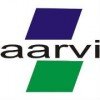Filter interviews by
S2 Infotech Network Engineer Interview Questions and Answers
S2 Infotech Network Engineer Interview Experiences
1 interview found
I applied via Referral and was interviewed in Aug 2022. There were 3 interview rounds.

(3 Questions)
- Q1. Tell me something about you
- Q2. What is your day to day activities.?
- Q3. Do you know about Routing and Switching as well as Firewall.??
- Ans.
Yes, I am familiar with Routing and Switching as well as Firewall.
I have experience in configuring and troubleshooting routing protocols such as OSPF and BGP.
I am proficient in VLANs, STP, and other switching technologies.
I have worked with various firewall vendors such as Cisco ASA, Palo Alto, and Fortinet.
I am knowledgeable in firewall policies, NAT, VPN, and other security features.
I am constantly learning and keepi...
(4 Questions)
- Q1. What is your day to day activities.??
- Q2. Why you choose Networking field?
- Q3. How you will upgrade yourself?
- Q4. What is function of wireshark and how we use that.??
- Ans.
Wireshark is a network protocol analyzer used for troubleshooting network issues and analyzing network traffic.
Wireshark captures and displays network packets in real-time.
It can be used to identify network issues, such as latency or packet loss.
Wireshark can also be used to analyze network traffic for security purposes, such as detecting malicious activity or unauthorized access.
To use Wireshark, you need to select th...
Interview Preparation Tips
Skills evaluated in this interview
Top trending discussions






Interview questions from similar companies

I applied via Walk-in and was interviewed in Dec 2020. There was 1 interview round.
Interview Questionnaire
1 Question
- Q1. About ftth and installation ???
Interview Preparation Tips

I applied via Approached by Company and was interviewed before Dec 2023. There was 1 interview round.
(1 Question)
- Q1. About experience & previous company

Senior Engineer Interview Questions & Answers
Spectrum Talent Managementposted on 21 Feb 2024
I applied via Company Website
(1 Question)
- Q1. What is power transformer?
- Ans.
A power transformer is a device used to transfer electrical energy between two or more circuits through electromagnetic induction.
Power transformers are used to step up or step down voltage levels in electrical power transmission and distribution systems.
They consist of primary and secondary windings wound around a core made of magnetic material such as iron.
Examples of power transformers include distribution transform...
Interview Preparation Tips

I appeared for an interview in Apr 2023.

(1 Question)
- Q1. They had asked some questions of Solar sector...
(1 Question)
- Q1. Discuss about Some personal questions as well as Location details

(2 Questions)
- Q1. What is Vlan explain
- Ans.
VLAN stands for Virtual Local Area Network, a method of segmenting a physical network into multiple virtual networks.
VLANs allow for better network security by isolating traffic between different groups of devices.
They can improve network performance by reducing broadcast traffic.
VLANs can be used to logically group devices based on department, function, or location.
Each VLAN operates as if it is on its own separate ne...
- Q2. Difference in P2P and MPLS
- Ans.
P2P is a direct connection between two parties, while MPLS is a network technology that directs data from one network node to the next based on short path labels.
P2P stands for Peer-to-Peer and is a decentralized communication model where each party has equal capabilities and responsibilities.
MPLS stands for Multiprotocol Label Switching and is a routing technique used in telecommunications networks to speed up and sha...
Skills evaluated in this interview

- Q1. What is expected salary
- Q2. What is your expected salary
- Q3. Expected salary

- Q1. Network basic testing
- Q2. Core networking question

I applied via Naukri.com and was interviewed in Jan 2021. There was 1 interview round.
Interview Questionnaire
3 Questions
- Q1. Quick introduction, followed by previous work experience.
- Q2. SQL joins, constraints, aggregate functions, analytic functions, stored procedures and functions, cursors, triggers, views, indexes, common table expression, temporary tables, materialized views.
- Q3. Python datatypes, functions, simple programs to code, methods, exception handling.
Interview Preparation Tips


(1 Question)
- Q1. Basic questions only
(1 Question)
- Q1. Related CCNA and ccnp
S2 Infotech Interview FAQs
Tell us how to improve this page.
S2 Infotech Interviews By Designations
- S2 Infotech Network Support Engineer Interview Questions
- S2 Infotech Software Testing Engineer Interview Questions
- S2 Infotech Software Engineer Interview Questions
- S2 Infotech Medical Coding Specialist Interview Questions
- S2 Infotech Software Tester Interview Questions
- S2 Infotech System Engineer Interview Questions
- S2 Infotech Network Engineer Interview Questions
- S2 Infotech Intern Interview Questions
- Show more
Interview Questions for Popular Designations
- Software Engineer Interview Questions
- Senior Engineer Interview Questions
- System Engineer Interview Questions
- Engineer Interview Questions
- NOC Engineer Interview Questions
- Senior Network Engineer Interview Questions
- Network Support Engineer Interview Questions
- Network Security Engineer Interview Questions
- Show more
Interview Questions from Similar Companies
S2 Infotech Network Engineer Reviews and Ratings
based on 28 reviews
Rating in categories
|
Network Engineer
119
salaries
| ₹2 L/yr - ₹5 L/yr |
|
Software Developer
99
salaries
| ₹2.6 L/yr - ₹9.6 L/yr |
|
System Support Engineer
78
salaries
| ₹2 L/yr - ₹4 L/yr |
|
Softwaretest Engineer
41
salaries
| ₹1.2 L/yr - ₹6.6 L/yr |
|
Java Developer
37
salaries
| ₹2 L/yr - ₹10.6 L/yr |

Randstad

Team Lease

Aarvi Encon

Spectrum Talent Management
- Home >
- Interviews >
- S2 Infotech Interview Questions














